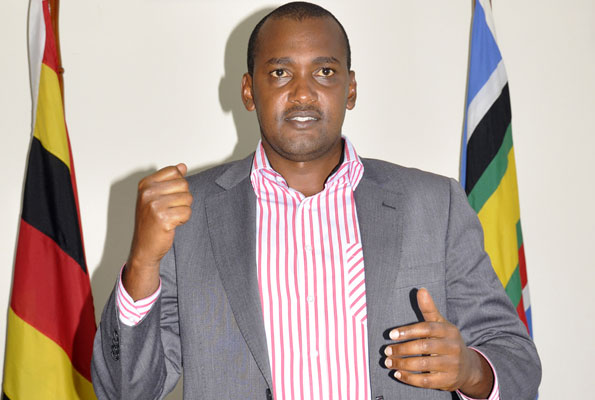
The Minister for Information and Communications Technology (ICT), Frank Tumwebaze has lauded a proposal by President Yoweri Museveni to impose a new tax on social media users.
The President came out last month and directed the Ministry of Finance, through the Uganda Revenue Authority, to begin levying tax on airtime and social networking sites such as Twitter, Facebook, WhatsApp, Skype and Viber and accused the responsible agencies of lack of seriousness in identifying tax sources to boost the country’s economy.
Mr Tumwebaze defended the presidents calls at the opening of 19th Africa Telecommunications Union Council of Administration conference in Kampala on Wednesday.
In the president’s statement, he stressed the big losses on telephones which he categorised in three areas; not collecting excise duty on airtime and only collecting VAT; missing many calls because you depended on under declarations by telephone companies and not taxing voice conversations and other non-educational communications via the internet (via WhatsApp, Facebook, etc).
Mr Museveni also encouraged the introduction of excise duty on airtime and taxation of OTTs at a cost of Shs100 per day.
Tumwebaze, while speaking at the event assured that the president’s proposal will be incorporated in new regulations for telecommunication companies in the broadband policy.
“Most people misquoted the president’s directive on the taxation of OTTs, said Tumwebaze, adding: “This is intended to encourage the consumption of the apps invented by Ugandan innovators. We are yet to present Uganda’s broadband policy to Cabinet because it has to be approved by different stakeholders.”
“However, some of the highlights are that we shall condition companies to share infrastructure and the others will pay utilities without each company laying a fibre in a place, Mr Tumwebaze told the conference.
In the new broadband policy Tumwebaze continued: “We want all telecom company operators to be national. This means they will cover the whole country and will create fair competition hence companies will just have to ensure that they are providing better services to the consumers.”
Tumwebaze was officiating at the 19th ATU council of administration ceremony in Kampala where he tasked regional unions to provide technical support that will inform the formulation of polices in African countries.
“These unions don’t have to invite us to come and sit just, but they should also provide technical answers that will inform the policies that work in our countries,” he said.
The 3-day ATU conference attended by over 50 delegates from 45 member states, is discussing how to spearhead development of the continent’s information and communications technology infrastructure to formulate effective policies and strategies.




